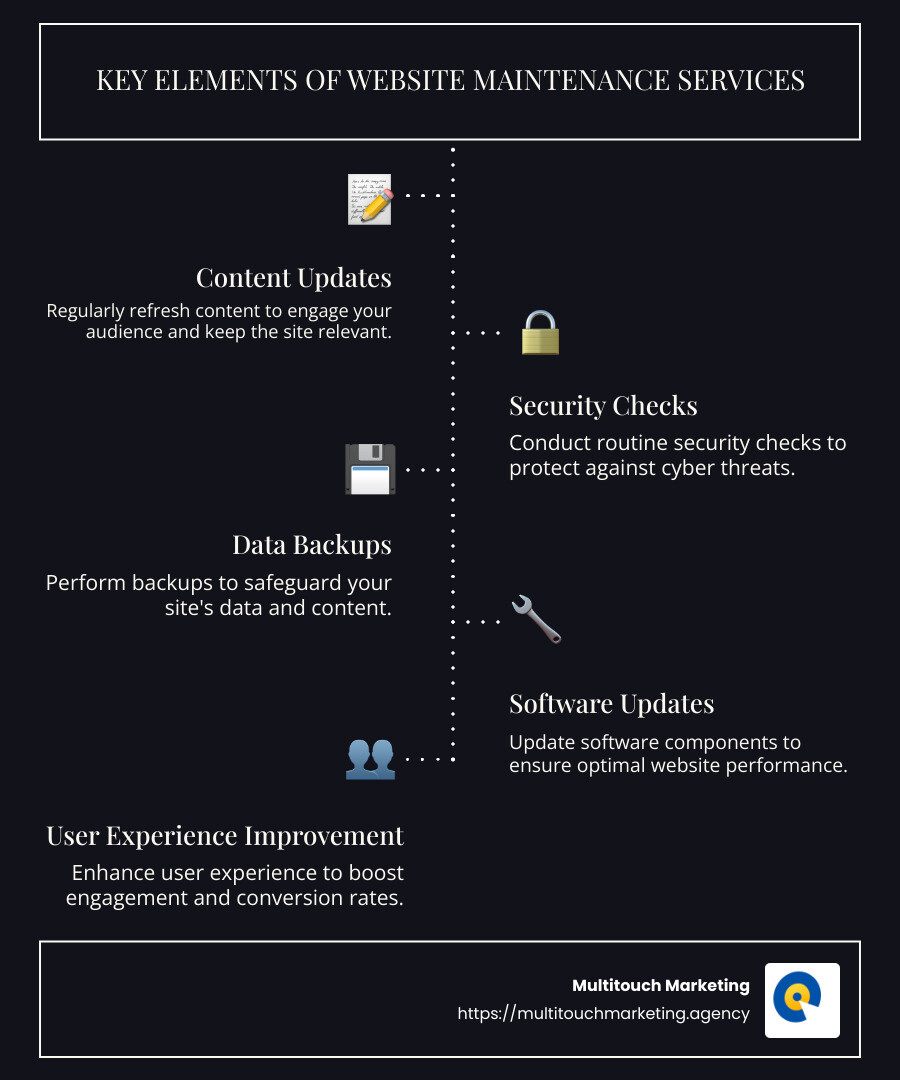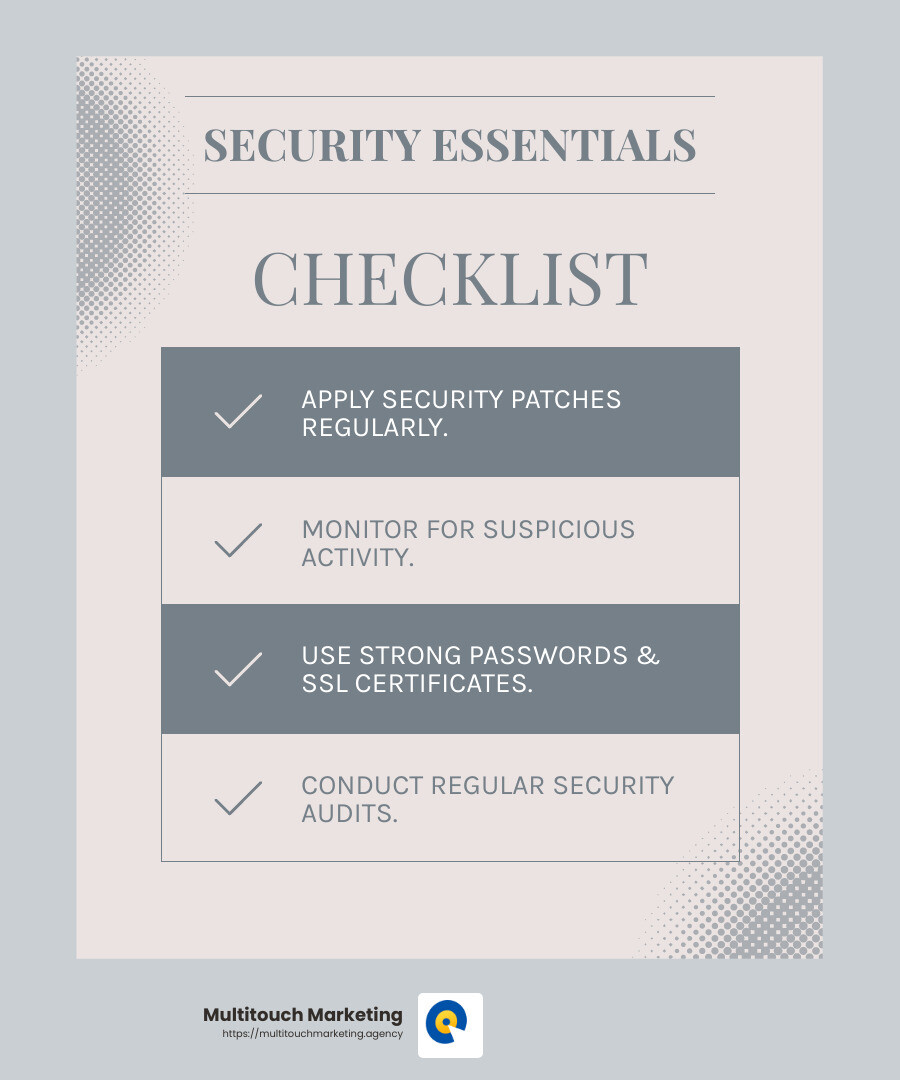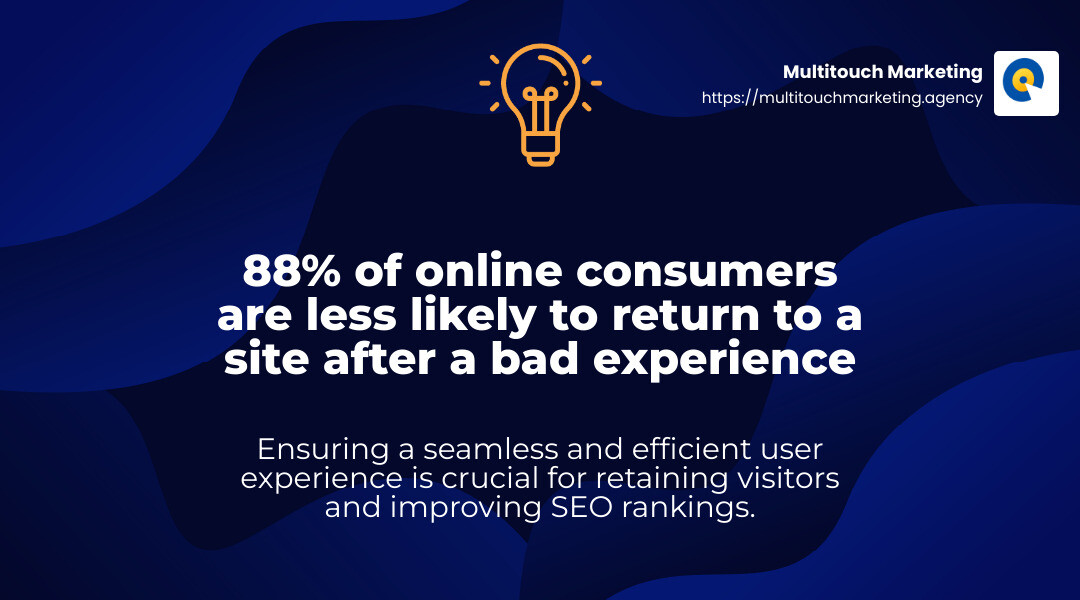Website maintenance services includes a variety of actions that ensure your site remains secure, functional, and appealing. Key elements of website maintenance services include:
- Regular content updates to keep your audience engaged.
- Security checks to protect against cyber threats.
- Routine backups to safeguard your data.
- Software updates to ensure optimal performance.
Effective website maintenance is crucial for any business aiming to thrive online. An up-to-date and secure website not only improves user experience but also boosts your site’s visibility on search engines. Regular maintenance helps prevent issues like slow load times or broken links, which can deter visitors and affect your search engine rankings.
As a small business owner, understanding the importance of website maintenance can significantly impact your digital presence. By keeping your website well-maintained, you provide a seamless experience for users, leading to increased engagement and higher conversion rates.
My name is Milton Brown, and I have over a decade of experience in digital marketing, specializing in enhancing online visibility and performance through strategic website management. With expertise in website maintenance services includes tasks like backups and security checks, I help businesses maintain robust and effective online platforms.
What Website Maintenance Services Includes
When it comes to website maintenance services, it’s all about keeping your site running smoothly and securely. Here’s a closer look at what this involves:
Content Updates
Regular content updates are essential. Fresh content keeps your audience engaged and helps with SEO. Whether it’s adding new blog posts, updating product information, or refreshing images, keeping your content current is key.
Imagine visiting a website where the latest news is from two years ago. Not very appealing, right? Keeping content fresh not only attracts visitors but also keeps them coming back.
Security Checks
Security checks are a must. Websites are constantly under threat from hackers and malware. Regular audits can identify vulnerabilities before they become a problem. This includes checking for outdated software, applying security patches, and monitoring for suspicious activity.
Implementing strong passwords and SSL certificates are also part of this process. These measures protect your website and build trust with your visitors.
Backups
Routine backups are your safety net. They ensure that you can quickly restore your website if something goes wrong, like a server crash or a hacking incident. Regular backups mean you won’t lose valuable data or content.
Think of it like an insurance policy for your website. It’s something you hope you never need, but you’ll be grateful to have it if disaster strikes.
Software Updates
Keeping your software updated is vital for both security and performance. This includes your content management system (CMS), plugins, and themes. Updates often come with security patches and new features that can improve your site’s functionality.
Neglecting software updates can leave your site vulnerable to attacks and can cause compatibility issues. Regular updates ensure everything runs smoothly and efficiently.
By focusing on these key areas, you can maintain a website that not only looks great but also performs well. This proactive approach helps prevent issues that could drive visitors away and impact your business’s online reputation.
Key Components of Website Maintenance
When diving into the key components of website maintenance, it’s crucial to focus on areas that directly impact user experience and site performance. Let’s explore these components:
Broken Links
Broken links can frustrate visitors and harm your SEO. When users click a link and land on a “404 error” page, it disrupts their journey and can lead to higher bounce rates. Regularly scanning for and fixing broken links is vital. Tools like broken link finders can help identify these dead ends, ensuring a seamless user experience.
SEO Optimization
Search Engine Optimization (SEO) is all about making your website more visible to search engines. Regular SEO optimization involves updating meta tags, optimizing content with relevant keywords, and improving site structure. This ensures that your site ranks higher in search results, driving organic traffic. A well-optimized site not only attracts more visitors but also improves credibility.
Performance Monitoring
Performance monitoring keeps your website running smoothly. It involves checking load times, server uptime, and overall site speed. Slow websites can deter visitors and affect your search engine rankings. By regularly testing and optimizing your site’s performance, you ensure a fast and efficient user experience. Techniques like compressing images and minimizing scripts can significantly boost load times.
User Management
Managing user access is a crucial part of website maintenance. This involves setting up user roles and permissions to control who can access certain parts of your site. Proper user management improves security by limiting access to sensitive areas. It also ensures that only authorized personnel can make changes, reducing the risk of accidental errors or security breaches.
By focusing on these key components, you can maintain a website that offers a smooth, secure, and user-friendly experience. This not only keeps your visitors happy but also supports your business goals by enhancing your online presence.
Security and Performance Optimization
When it comes to website maintenance services, security and performance optimization are critical. They ensure your site is safe for users and runs smoothly. Let’s explore the essential aspects:
Security Patches
Security patches are like the shields for your website. They fix vulnerabilities that hackers might exploit. Web development companies regularly release these patches to keep software secure. Installing security patches promptly is crucial. Delaying updates can expose your site to cyber threats, risking your data and users’ information. Always stay on top of these updates to maintain a secure environment for everyone who visits your site.
Load Time Optimization
Nobody likes a slow website. Slow load times can frustrate visitors and send them running to faster sites. Optimizing load times is key to keeping users engaged. Simple fixes like compressing images, minifying code, and leveraging browser caching can make a big difference. According to Google PageSpeed Insights, faster load times improve user experience and can boost your search engine rankings. By focusing on load time optimization, you improve both user satisfaction and SEO performance.
Accessibility Testing
Accessibility testing makes sure everyone can use your website, including people with disabilities, those using mobile devices, and folks with slow internet connections. It’s not just about compliance; it’s about being inclusive. Regular accessibility testing helps identify barriers that might prevent some users from accessing your content. By addressing these issues, you provide a better experience for all visitors and expand your reach to a broader audience.
Incorporating security patches, load time optimization, and accessibility testing into your website maintenance routine ensures your site is not only secure and fast but also accessible to everyone. This comprehensive approach supports a positive user experience and strengthens your online presence.
Regular Content and SEO Updates
Keeping your website fresh is like giving it a regular tune-up. Fresh content not only keeps your audience engaged but also plays a big role in improving your search engine rankings. Search engines love new and relevant content, and they reward sites that provide it consistently. Adding new blog posts, updating product descriptions, or refreshing old articles can make a noticeable difference.
SEO Best Practices
Search Engine Optimization (SEO) is your ticket to getting noticed online. By following SEO best practices, you ensure that your website is easily findable by search engines. This includes using relevant keywords, optimizing meta tags, and ensuring your site structure is search-friendly. Regularly updating your SEO strategy to align with the latest algorithm changes can keep your site ahead of the competition.
Search Engine Rankings
Your search engine ranking determines how easily potential customers can find you. Higher rankings mean more visibility and traffic. By combining fresh content with effective SEO strategies, you can climb the search engine ladder. Regularly monitoring your website’s performance using tools like Google Analytics can help you track your progress and identify areas for improvement.
Incorporating regular content updates and following SEO best practices are essential components of website maintenance services. They ensure your site remains relevant, visible, and competitive in the ever-changing digital landscape.
Frequently Asked Questions about Website Maintenance Services
What do website maintenance services include?
Website maintenance services include a variety of tasks aimed at keeping your site running smoothly and securely. These tasks can be broken down into several key areas:
- Routine Updates: Regular updates are crucial for keeping your website’s software, plugins, and themes current. This ensures you have access to the latest features and security improvements. According to the research, failing to update these elements can expose your site to security risks and outdated technology.
- Security Measures: Protecting your website from threats is a top priority. Maintenance services include regular security audits, malware scans, and applying security patches to safeguard your data and user information. A proactive approach to security can prevent hacking and data breaches.
- Backups: Regular backups are your safety net. They ensure that you can restore your website to a previous state if something goes wrong, such as a server crash or a cyber attack. This step is essential for minimizing downtime and data loss.
- Software Updates: Keeping your content management system (CMS) and other software up to date is vital. These updates often include bug fixes and performance improvements that improve your website’s functionality and user experience.
How much should I charge for website maintenance?
The cost of website maintenance can vary widely depending on several factors:
- Cost Factors: The type and size of the website, the complexity of the maintenance tasks, and the level of expertise required all influence pricing. For example, a hobby website might cost as little as $3-$25 per month, while a business website could range from $15-$2750 per month. E-commerce sites and enterprise-level websites typically incur higher maintenance costs due to their complexity and security needs.
- Pricing Models: Different providers may offer various pricing structures. Some common models include hourly rates, monthly retainers, or annual contracts. It’s important to choose a pricing model that aligns with your budget and the specific needs of your website.
How long does website maintenance usually take?
The duration of website maintenance tasks can vary based on the scope of work and the frequency of updates:
- Task Duration: Routine tasks such as backups and software updates can often be completed quickly, sometimes within a few hours. However, more comprehensive tasks like security audits or major content updates may take longer.
- Time Management: Efficient time management is key to minimizing downtime and ensuring your website remains accessible to users. Scheduling maintenance during off-peak hours can help reduce the impact on your site’s availability.
Website maintenance is an ongoing process that requires regular attention to keep your site secure, functional, and up to date. By understanding these factors, you can better plan and budget for effective maintenance services.
Need help?
At Multitouch Marketing, we understand the critical role that website maintenance services include in your digital marketing strategy. Our expertise not only covers the essentials of keeping your site up-to-date and secure but also extends to maximizing your online presence through effective pay-per-click (PPC) advertising.
Digital Marketing Expertise
In today’s digital landscape, having a well-maintained website is just the beginning. Our team at Multitouch Marketing is dedicated to ensuring that your website not only runs smoothly but also supports your broader digital marketing goals. We believe that a strong online presence is crucial for attracting and retaining customers. This is why we integrate our website maintenance services with our digital marketing strategies to provide a comprehensive solution for your business.
PPC Advertising Excellence
As specialists in PPC advertising, we know that driving targeted traffic to your website is essential for conversions and revenue growth. Our team leverages the dynamic nature of PPC to create campaigns that reach your ideal customers efficiently. We take pride in our ability to steer the complexities of PPC marketing, ensuring that your advertising budget is used effectively to generate the best possible results.
Partnering with Multitouch Marketing means you’ll have a dedicated team that understands your business goals and works tirelessly to achieve them. Our comprehensive approach to website maintenance and digital marketing ensures that your online presence remains strong and competitive.
For more information on how we can help you with your website maintenance needs, visit our Website Maintenance Services page. Let us help you keep your site running smoothly and your business growing.




